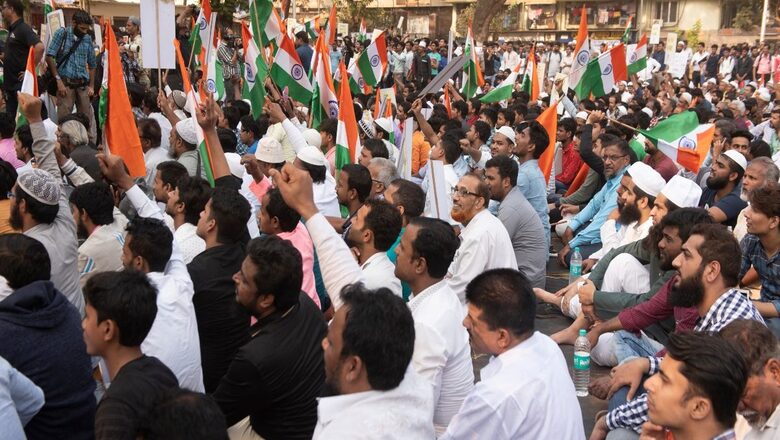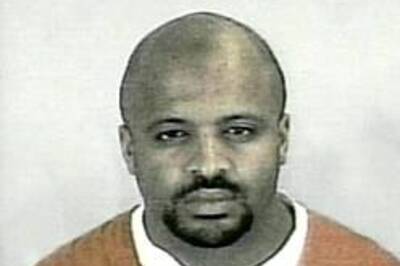
views
In his recent article ‘The current talk of decolonisation…’ Pratap Bhanu Mehta (The Indian Express, September 1, 2023) correctly describes the decolonial movement, as exemplified in India by J Sai Deepak and Ambika Dutt Sharma, as a loose intellectual movement. An intuitive starting point of the decolonials is that one needs to go beyond the kind of ‘modern’ decolonisation project that Mehta endorses. Mehta thinks though that the decolonial project is deeply exclusionary. It conflates modernity with colonialism, without the impulse to subject the collective rules Indians live under to practices of justification. The project is insidious, he says, and poses the following rhetorical question as his challenge: “What should be the terms on which citizens relate to each other? Can the answer to that simply be “whatever is Indic”?”
The decolonial movement has some overlaps with the decolonisation movement more broadly. Many thinkers including Ashis Nandy and Partha Chatterjee have been discussing it. One might therefore ask whether Mehta has a problem when only those writers and groups to which he objects refer to it. His criticism of the decolonialty project seems to be based on the idea that Hindu nationalists are exclusionary and therefore decoloniality is the project of exclusion. In his political urgency to criticise Hindu nationalists, Mehta is undermining the very significance of the project of decolonisation itself.
Consider another way of making sense of this issue emerging from the seminal research programme of SN Balagangadhara, to which Mehta makes occasional reference in his works, but yet overlooks the lessons of. Balagangadhara draws a distinction between Western and Indian culture and helps us to think through the problematic nature of Mehta’s claim. Mehta is against opposing the West and Indian cultures, but some comparison is necessary. This opposition between them is not only necessary but makes sense because the two cultures differ differently.
If we take Western culture, we find that it has been deeply involved in theorising the many dimensions of the way human beings relate to each other and the world. Although he avoids linking it to its Western provenance, this is the cultural model against which Mehta’s ‘modernity’ is framed. It is a theory-rich culture including on the terms on which citizens ought to relate to each other.
This theoretical richness also informs the learning mechanisms prevalent in the West. For example, this culture enacts laws against discrimination in order to teach citizens how not to disadvantage each other on inadmissible grounds. It is now also busy in extending such laws to caste discrimination because of the presence, it is claimed, of so many people of Indian origin in Western countries. Although he and almost all other Indian academics employed in Western universities remain silent about these Western caste laws, one wonders what Mehta makes of them.
The important point is that this culture has theories and laws galore, intended to ensure that persons relate well to each other as citizens. We know, however, that social relations in this culture are in reality very fraught, with conflict happening on many fronts and between different groups. Interpersonal relations do not fare that well despite all the theories and laws. A culture so rich in theories of how people ought to relate to each other, in fact, does quite a poor job of enacting them in practice.
In the Indian culture, meanwhile, there is a deficit of theories on how people ought to relate to each other. Many of these ideas and rules on how to do that have been received from the Western culture. However, when they have been implemented as laws, for example, those to make low caste people or women protected from harm, have not worked well. Many cases are brought on false pretexts in order to prosecute social conflict further or for extortion. Hardly a day goes by without a report of a false case against a husband or a Brahmin, some of which result in suicide by the falsely accused. The legal system seems helpless to stop this pattern but exacerbates it.
Outside the sphere of these laws and the ideas behind them, however, do Indians not relate well to each other and don’t they have an understanding of managing social relations? The point is not that there is no social conflict, which exists in every culture or society. Rather, it is that, as a culture, India has developed knowledge of how human beings can relate to each other without the need for elaborate theories of citizenship to foster a modus vivendi and to have them enacted as laws. Although there is no Indian Confucius, India has been able to nurture learning to correct wrongful behaviour.
In other words, India is a culture in which there is practical knowledge concerning social relations which depends neither on theorisation as its precondition nor on externally imposed laws. The fact that such theories may not exist in India does not mean that Indians do not have knowledge of conducting human relationships. Mehta may just be looking in the wrong place. In the long battle between tradition and modernity, we may have to look to the Indian traditions as the transmitters of this practical knowledge. Contrary to Mehta’s claim, the moral preaching borrowed from the Western culture since colonialism hinders this practical knowledge that Indians possess. Maximally, Mehta might instead say that a serious decolonisation project might render the preaching that took place in India over the past couple of centuries redundant, useless at best, and pernicious at worst.
Since ‘modernists’ like Mehta have a particular problem with, say, caste, let us formulate the following as a problem, but without the usual stigmatising conception India has inherited from the West. How is it that, in India, different social groups (jatis) in huge numbers have lived alongside one another with minimal conflict, with no centralised rule system or theoretical framework instructing them how to do so? In a way, Mehta has a point when he argues that would-be decolonialists appear to think that the rules we live under do not require justification. There is no reason they should, certainly not in terms of theories. To an extent, it is the case that deserves going into far more thoroughly. Mehta’s dismissive stance rules it out though.
When social problems do occur, as they inevitably do, Balagangadhara’s distinction points to where we might look for solutions: in the enhancement of practical learning or theories and laws? If Mehta is serious about his theorising enterprise, rather than trying to hammer in what the West has to offer regarding the diversity of living, it would be more worthwhile to theorise in a serious way the practical knowledge that Indians have, of relating to and living with each other.
The writer is a Reader in Culture and Law at Queen Mary, University of London. He is author of Against Caste in British Law (Palgrave, 2015) and co-editor of Western Foundations of the Caste System (Palgrave, 2017). Views expressed in the above piece are personal and solely that of the author. They do not necessarily reflect News18’s views.















Comments
0 comment